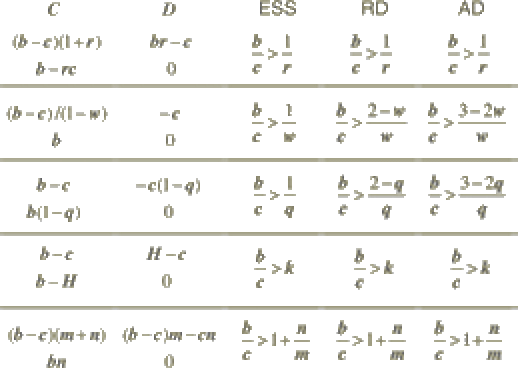 Can algebraic expressions help us understand morality?
Yes, sometimes. Cooperative or helping behavior can be costly to the individual, even if it benefits another organism. Natural selection would seem to favor cheaters: free-riders can proliferate at the expense of cooperators — and thereby eliminate any cooperation. But if the recipients are related genetically, or there is some form of reciprocity, benefits may exceed the costs and the behaviors may persist. The exact relationships of costs and benefits can be expressed mathematically and tell us when such behavior can evolve (as seen here in a table from a 2006 review article by Martin Nowak in Science). Can algebraic expressions help us understand morality?
Yes, sometimes. Cooperative or helping behavior can be costly to the individual, even if it benefits another organism. Natural selection would seem to favor cheaters: free-riders can proliferate at the expense of cooperators — and thereby eliminate any cooperation. But if the recipients are related genetically, or there is some form of reciprocity, benefits may exceed the costs and the behaviors may persist. The exact relationships of costs and benefits can be expressed mathematically and tell us when such behavior can evolve (as seen here in a table from a 2006 review article by Martin Nowak in Science).
Read more about scientific perspectives
on the evolution of moral behaviors and outcomes. =>
|